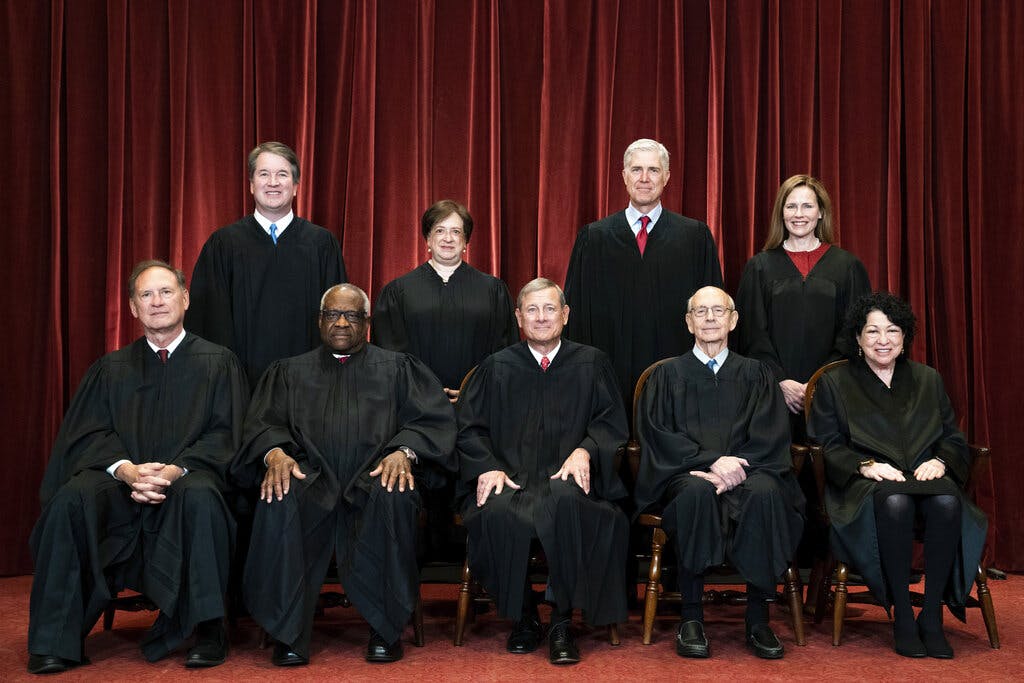Democrats Ready To Turn Up Heat as Reports of Leak Rattle High Court
Senate Democrats, in an effort to bring the court to heel, look to exploit an alleged indiscretion eight years old.

The alleged 2014 dinner party disclosure of the outcome of Hobby Lobby v. Burwell from Justice Samuel Alito to a pair of friends — reported by the Reverend Robert “Rob” Schenck to Chief Justice Roberts — could give Democrats the caucus belli they need to advance long-held plans to bring the Supreme Court to heel.
That effort, thus far waged in committee hearings and the court of public opinion, has been re-energized by the news of yet another leak. That news came seven months after the draft opinion of Dobbs v. Jackson Women’s Health made its way to Josh Gerstein and Alexander Ward of Politico.
The news that secrets were leaked at supper at the Alitos — the justice denies the report, which was related in the New York Times — was seized on by two senators, Richard “Dick” Durbin and Sheldon Whitehouse, and a congressman, Henry “Hank” Johnson. Mr. Johnson has led hearings that contemplated impeaching Justice Clarence Thomas.
Democrats point out that Supreme Court justices aren’t covered by the Code of Conduct that cover other United States judges. As a nonpartisan policy shop, the Congressional Research Service, puts it, the “Court is not presently subject to a defined body of general ethical rules.”
There is, at least in theory, a reason for that — namely what Chief Justice Rehnquist once called the “duty to sit.” A Supreme Court justice cannot, say, be forced by a vote of the other judges, or an outside body, to recuse himself. That would, after all, give others a way to block from a case a justice whose opinion the majority might be worried about.
Mr. Durbin, nonetheless, picked up the ethics issue, castigating the “inexcusable ‘Supreme Court loophole’ in federal judicial ethics rules.” He urged the passage of the Supreme Court Ethics Act, Senator Murphy’s brainchild. That bill would require the high court to adopt a code of ethics for itself.
There has been intermittent rumbling from the court itself that it could consider such a measure. In 2019, Justice Elena Kagan disclosed that the “chief justice is studying the question of whether to have a code of judicial conduct that is applicable only to the United States Supreme Court,” a move she reported was “being thought very seriously about.”
The allegations regarding Hobby Lobby led Messrs. Whitehouse and Johnson to release a hitherto private letter sent to Chief Justice Roberts in September. The Democrats thunder to the chief that his court has “been quietly captured by far-right political groups and secretive dark money influence. The Court needs to get its house in order.”
The letter takes aim at what one conservative lobbying organization focusing on the Supreme Court calls “Operation Higher Court,” which aimed to utilize personal relationships and private interactions — like the one noted in Mr. Schenck’s note — to tug rulings in a conservative direction. The reverend avers that those drafted into the effort “knew they were being coached.”
This has been a persistent preoccupation for Mr. Whitehouse. In September, he took to the Senate floor to expose “how dark money operatives, working from the shadows, have installed Supreme Court Justices handpicked — handpicked — by the minions of far-right donors.” In response to the latest kerfuffle, he tweeted in regard to the Nine that the “first step to recovery is to admit you have a problem.”
The particular target of his ire has long been the driving force of a conservative legal organization, the Federalist Society, Leonard Leo. The senator calls him a “character” and the “little spider that you find at the center of the dark money web,” and he decries donations to the society as “creepy and clandestine.”
Democrats in the Senate will be in a stronger position to turn the heat up on the court if Senator Warnock defeats challenger Herschel Walker to deliver a 51st seat to the party. That extra vote would enable the Judiciary Committee to subpoena witnesses, which is beyond its ken in a chamber deadlocked 50 to 50.

